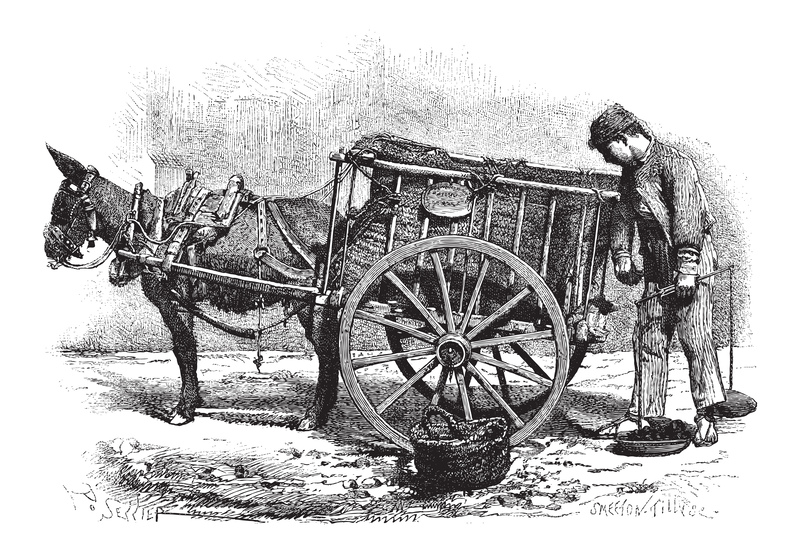Budget Tips for Efficient Bulky Waste Management
Bulky waste management can be a daunting challenge for households, businesses, and even community organizations. Items like broken furniture, old appliances, mattresses, and other large items can quickly overwhelm standard waste disposal methods. Fortunately, there are cost-effective ways to handle these challenges. This article will provide comprehensive, actionable, and SEO-optimized tips to help you manage bulky waste efficiently on a budget, whether you are a homeowner, property manager, or small business owner.

Understanding Bulky Waste: What Qualifies?
Before diving into budget-friendly bulk waste disposal tips, it's important to understand what bulky waste is. Commonly referred to as large-item waste, these are objects that don't fit in regular trash bins due to their size or volume. Examples include:
- Old sofas and recliners
- Broken refrigerators, washing machines, or dishwashers
- Damaged beds, mattresses, and box springs
- Large toys, playground equipment, or bicycles
- Carpets and large rugs
- Old cabinets or wardrobes
Because these items are bulky, they often require special handling and disposal methods, which can come with additional costs if not managed efficiently.
Why Effective Bulky Waste Management Matters
Efficiently managing bulky waste is not just about saving money--it's about environmental stewardship, convenience, and ensuring safety for your family or employees. Here are several reasons why smart bulk item disposal is essential:
- Environmental Protection: Properly disposing or recycling large items reduces landfill waste and conserves resources.
- Cost Savings: Avoiding fines for improper disposal and reducing landfill trips save money in the long term.
- Community Cleanliness: Timely removal of bulky items prevents pest infestations and keeps neighborhoods attractive.
- Safety: Bulky items left unattended can pose tripping hazards or block emergency exits.
Top Budget-Friendly Tips for Bulky Waste Management
Ready to save money and still achieve efficient bulky waste removal? Discover our best cost-cutting strategies below.
1. Plan Ahead: Timing is Everything
If you wait until bulky items pile up, you're likely to pay more for removal. Instead, plan a schedule for routine cleaning and disposal. Many municipalities offer free or low-cost curbside large waste collection on designated dates.
- Check your city's bulk waste pickup schedule and coordinate your decluttering to align with these times.
- For businesses, set a quarterly or yearly review to assess large unwanted items.
Planning ahead can prevent last-minute emergency cleanups, which usually come with additional fees.
2. Leverage Municipal Bulky Item Disposal Programs
Most cities and towns offer bulky waste pick-up services either included with regular waste collection or for a nominal fee. Take advantage of these options!
- Research local programs: Contact your city or visit their website to learn about what items are accepted, pickup dates, and restrictions.
- Register in advance as spots can fill up quickly, especially during spring or fall cleaning seasons.
- Remember, putting out items outside of official collection days can result in fines.
3. Reuse, Donate, or Sell Before You Toss
Not all bulky waste needs to go to the landfill. Ask yourself: can any items be reused, donated, or even sold for a small profit?
- Donation: Many charities and non-profits accept furniture, working appliances, or mattresses. Some will even pick up large items for free.
- Online marketplaces: Platforms such as Facebook Marketplace, Craigslist, or local community groups are great for giving away or selling unwanted large items.
- Creative reuse: Old cabinets can be repurposed for garage storage, or broken chairs can be upcycled into planters.
Extending an item's life not only keeps it out of the landfill but also reduces disposal costs.
4. Dismantle Bulky Items to Save
Sometimes breaking down large items into smaller pieces can reduce removal costs. For example:
- Remove legs from tables or couches to make them fit in smaller vehicles for DIY disposal.
- Cut mattresses or carpets into manageable pieces in accordance with local waste guidelines.
Dismantling may also allow you to recycle certain components (such as metals or wood), earning back some money at recycling centers.
5. Compare Junk Removal Services and Dumpster Rentals
If you have significant amounts of bulky waste, consider hiring a professional service. But don't just choose the first company you find.
- Get multiple quotes: Prices can vary widely.
- Ask about volume-based pricing: Some companies charge by the amount of space your items take up, rather than by item count.
- Consider a group clean-out with neighbors to share costs for a dumpster rental.
Always inquire about any extra charges for heavy or hazardous items before committing to a service.
6. Take Advantage of Recycling Centers
Many local recycling centers accept bulky waste such as metal appliances, electronics, or mattresses, sometimes for free or a reduced rate. This is both eco-friendly and economical.
- Check hours and accepted items: Certain centers only take large items on specific days or months.
- Some centers even offer incentives, such as payments for scrap metal or appliances.
7. Organize Community Bulk Waste Collections
Host or participate in a neighborhood bulky item disposal event. Many communities pool resources to hire a skip/dumpster or coordinate with the local government for a dedicated collection day.
- Benefits include shared costs, building community relationships, and increased efficiency in removal.
- This strategy is particularly effective for apartment complexes, HOAs, or small business collectives.
8. Understand Local Regulations and Avoid Fines
Improper bulky waste disposal can lead to hefty fines. Each city has its own ordinances regarding large item placement and disposal.
- Never leave bulky items on the curb outside of designated pick-up periods.
- Research restrictions for certain materials like electronics, hazardous waste, or construction debris.
Compliance not only saves money but also reflects environmental responsibility.
9. DIY Disposal: Weighing Costs and Benefits
For those with access to a suitable vehicle, do-it-yourself bulky waste disposal can be budget-friendly, especially for single items or small quantities.
- Calculate expenses: Factor in landfill tipping fees, travel time, and fuel before opting for this route.
- Always confirm landfill regulations for item types and size restrictions before you load up your truck or trailer.
Teaming up with friends or neighbors to split costs and labor makes DIY even more cost-effective.
10. Invest in Preventive Measures
The best way to handle bulky waste is to create less of it. Here's how you can minimize future bulky waste generation:
- Choose quality, durable items that last longer and need less frequent replacement.
- Rent large items for occasional needs instead of buying them outright.
- Maintain and repair existing furniture and appliances rather than discarding them at the first sign of trouble.
- Educate your household or staff about the costs (and environmental impact) of improper disposal.
Key Benefits of an Efficient Bulky Waste Management Plan
By implementing these budget-friendly strategies for large waste items, you'll enjoy a range of benefits, including:
- Lower overall waste management costs
- Less environmental impact and resource conservation
- A cleaner, safer home or business environment
- Stronger local community ties through shared initiatives
- Compliance with local regulations, avoiding fines
Common Myths About Bulky Waste Removal
Myth: "It's always expensive to remove bulky items."
Fact: With the right approach--including donations, recycling centers, and planning around municipal pickups--removal can be affordable or even free.
Myth: "Dumping on the curb is the fastest way."
Fact: Illegal dumping can result in steep fines and neighborhood blight.

Frequently Asked Questions (FAQs) About Budget Bulky Waste Management
-
What should I do with old mattresses or box springs?
Most cities prohibit leaving mattresses on the curb outside of specified collection dates. Ask your local government about mattress recycling programs or donation options. -
Where can I find free bulky item pickup services?
Search your municipality's waste management site or community bulletin. Many offer an annual or quarterly large waste collection for residents. -
Are there alternatives to landfill disposal?
Yes! Donate, repurpose, or take items to recycling centers. Some retailers also offer take-back programs for old appliances or furniture with a new purchase. -
Can I cut up large items and put them in regular trash?
Sometimes. Check with your waste collection provider for rules on accepting smaller pieces--especially for mattresses or electronics.
Conclusion: Smart, Sustainable, and Cost-Efficient Bulky Waste Management
Efficient bulky waste management on a budget is achievable with smart planning, resourcefulness, and an understanding of available programs and local regulations. Remember to plan ahead, take advantage of municipal services, find new homes for unwanted items, and involve your community for shared benefits.
By following these tips, you will not only save money on disposal fees, but you'll also support environmental sustainability, comply with local rules, and foster a cleaner, safer environment for everyone.
Start implementing these budget-friendly bulky waste management strategies today and transform your approach to large-item disposal--in your home, workplace, and community.
